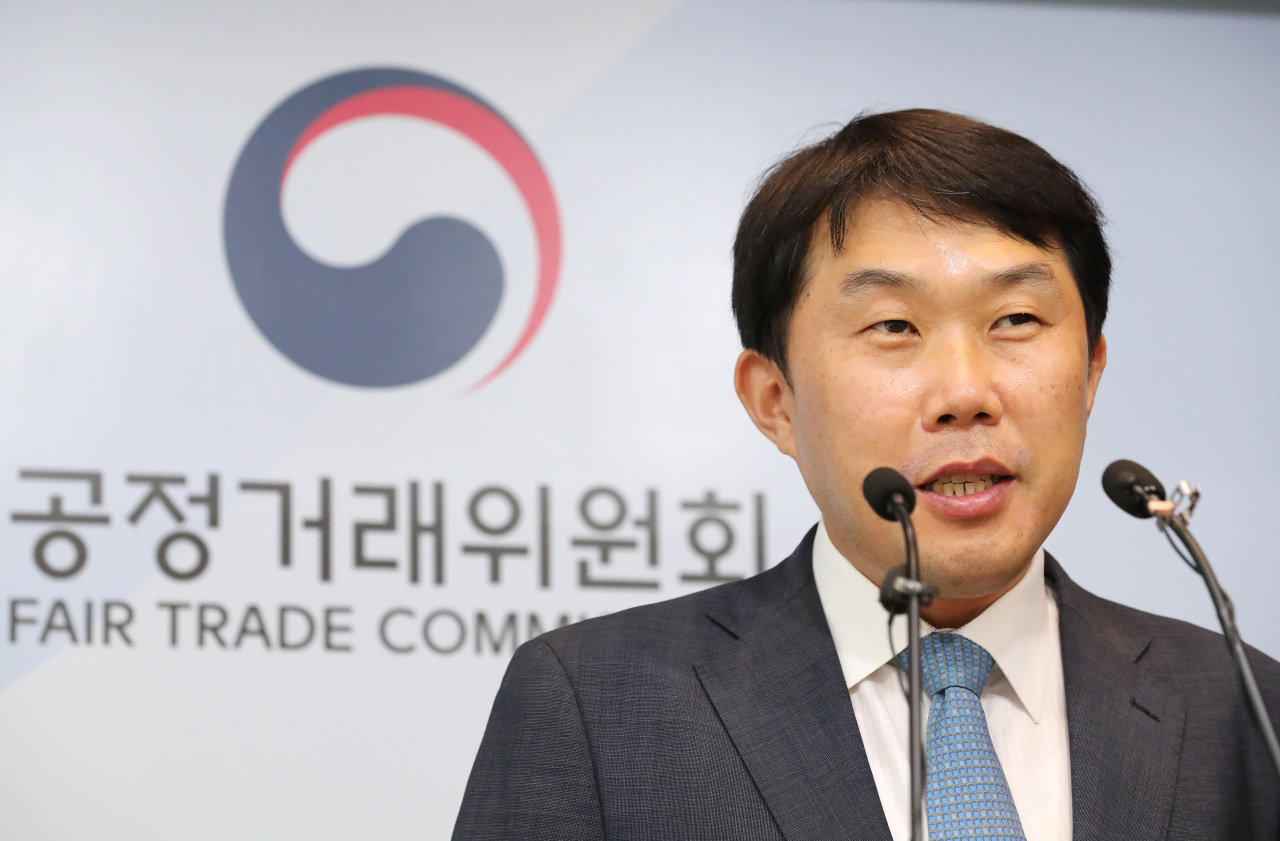FTC fines Kumho Asiana W32b, reports chairman to prosecutors
By Shin Ji-hyePublished : Aug. 27, 2020 - 17:53

South Korea’s antitrust watchdog has decided to impose a fine of 32 billion won ($27 million) on Kumho Asiana Group for unfair internal transactions that aimed at tightening family control over the conglomerate, officials said Thursday.
The Fair Trade Commission also reported Chairman Park Sam-koo and two other executives to prosecutors.
The FTC said Kumho Asiana Group used the in-flight meal business rights of its flagship affiliate Asiana Airlines to illegally fund struggling Kumho Buslines. Then, Kumho Buslines with abundant funds acquired key affiliates to increase the control of the family and laid the foundation for the succession.
According to the authorities, Asiana Airlines signed a 30-year contract to sell the airline’s in-flight meal business to Swiss airline caterer Gategroup in 2016, on the condition that it invested in Kumho Buslines.
In 2017, Gategroup acquired 160 billion won worth of bonds with warrants issued by Kumho Buslines with a zero rate of interest. At that time, the bonds carried a coupon rate of 3.77 percent and 3.82 percent, the FTC said.
By selling the bonds with a zero rate of interest, Kumho Buslines pocketed 16.2 billion won in profits, the FTC said.
The regulator said, “Asiana Airlines, as a matter of fact, guaranteed and secured Kumho Buslines to issue bonds with warrants through exclusive in-flight meal transactions.”
“Since it was impossible to exercise preemptive rights of Kumho Buslines bonds with warrants, the possibility of acquiring the bonds with warrants was slim if it were not for the package transactions of the in-flight meal and bonds with warrants.”
In response, Kumho Asiana has released a statement, denying the charges and calling the FTC’s decision an “unreasonable accusation.”
“It is embarrassing that the FTC made the decision despite the fact that the group’s related companies fully explained during the FTC’s plenary session that the loan transaction, in-flight meal transaction and bond with warrant transactions were normal transactions.”
In 2018, Asiana Airlines was accused of forcing one of its suppliers to buy bonds issued by Kumho Asiana Group’s holding company.
LSG Sky Chefs Korea, a local unit of the world’s leading provider of in-flight catering services, reported the case to the FTC, saying that Asiana demanded the company buy some 160 billion won worth of bonds with warrants issued by Kumho & Co.
It also claimed that Asiana signed a new deal with a Chinese company as LSG Sky Chefs Korea rejected the offer.
Between 2016 and 2017, Kumho Asiana Group forced its nine affiliates to lend money to Kumho Buslines at an artificially low interest rate, according to the FTC.
Helped by such unfair transactions, Park, the former chairman, who held a significant stake in Kumho Buslines, earned at least 7.7 billion won in profits, the FTC said.
Last December, a consortium led by HDC Hyundai Development signed a deal to acquire a 30.77 percent stake in Asiana Airlines from Kumho Industrial, a construction unit of Kumho Asiana Group, as well as new Asiana shares to be issued and the carrier’s six affiliates, for 2.5 trillion won.
The consortium had planned to complete the acquisition by June 27. But the COVID-19 pandemic emerged as a major stumbling block early this year.
By Shin Ji-hye and news reports (shinjh@heraldcorp.com)








![[Graphic News] More Koreans say they plan long-distance trips this year](http://res.heraldm.com/phpwas/restmb_idxmake.php?idx=644&simg=/content/image/2024/04/17/20240417050828_0.gif&u=)
![[KH Explains] Hyundai's full hybrid edge to pay off amid slow transition to pure EVs](http://res.heraldm.com/phpwas/restmb_idxmake.php?idx=644&simg=/content/image/2024/04/18/20240418050645_0.jpg&u=20240419100350)






![[From the Scene] Monks, Buddhists hail return of remains of Buddhas](http://res.heraldm.com/phpwas/restmb_idxmake.php?idx=652&simg=/content/image/2024/04/19/20240419050617_0.jpg&u=20240419175937)

![[KH Explains] Hyundai's full hybrid edge to pay off amid slow transition to pure EVs](http://res.heraldm.com/phpwas/restmb_idxmake.php?idx=652&simg=/content/image/2024/04/18/20240418050645_0.jpg&u=20240419100350)

![[Today’s K-pop] Illit drops debut single remix](http://res.heraldm.com/phpwas/restmb_idxmake.php?idx=642&simg=/content/image/2024/04/19/20240419050612_0.jpg&u=)